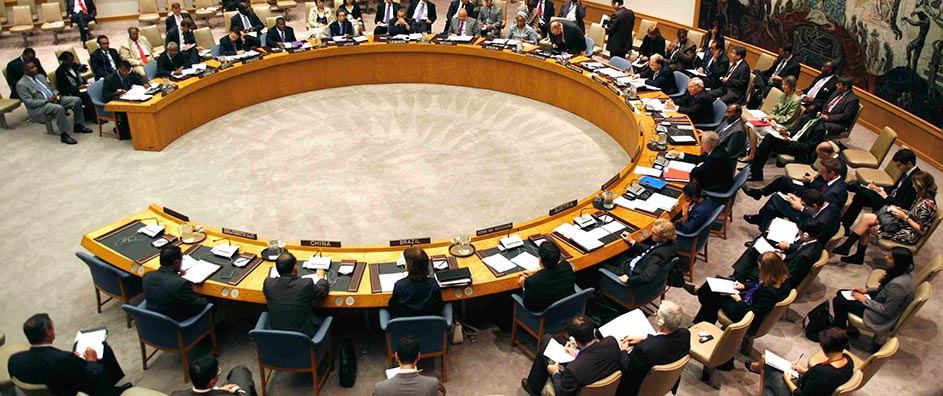The views expressed in our content reflect individual perspectives and do not represent the authoritative views of the Baha'i Faith.
In the first part of this series of essays on the potential of our world a generation from now, we looked at the possibility of a democratic World Council and a universal peace treaty, and at all the powerful, positive impacts those changes could make for the people of the earth. Let’s consider, in this part of our exploration, what a future government, both national and global, could possibly aspire to become.
A generation from now, the federal system has evolved, and nation-states have now become a federated union across the entire planet. Much like the current states in the United States or the individual nations in the European Union, the world’s nation-states now belong to one global federal system. Born out of the realization that the old model of national sovereignty led inevitably to conflict, the new world federation, a Parliament of Humanity, has officially abolished every country’s ability to declare war. Instead, each country maintains a military force sufficient to deal with its internal needs, and all governments agree that consultation, diplomacy, mediation and arbitration have replaced the destruction and devastation of war.
Most of the world’s nations now have strong, non-arbitrary and non-preferential laws and regulations universally applied, and state laws cannot trump or conflict with federal laws, which now cover lower levels of human and business interactions. Government serves all its constituents, at six basic levels: global, federal, state, county, township and city. Three branches of government still apply: Executive, Legislative and Judiciary, with clear separation of duties, powers, and responsibilities, and without internecine strife.
As opposed to the infighting and political gridlock of a generation ago, those three branches of government increasingly cooperate and support each other to the extent that the general public good and security are always the primary goals of all governmental operations. As individuals, citizens voluntarily cede some of their personal rights and resources for the common good of the majority. Likewise, the States have ceded some of their sovereignty to make laws and collect taxes in favor of national standards, just as the nations have in pursuit of international unity.
All people have access to good health care and competitive medical programs, where the user knows all costs and prices in advance, and archaic state laws restricting many insurance sales and programs are now administered globally, with regional influences allowed for and incorporated. Taxation, which previously favored those with the most financial resources, is now more progressive, equitable and fair for all, with very limited exemptions.
The Executive branch at the global level administers and maximizes stewardship of the world’s vast resources and production, provides for common defense and emergency responses, as well as social services; maintains foreign relations, and enforces laws and regulations.
The Legislative branch is composed of a bicameral legislature (i.e. senate and assembly), and flourishes based on compromise and consensus at the planetary, national and state levels. Legislators discuss proposed laws in public forums before passage, and online access to all bills and ordinances provides multiple opportunities for public comment, opinion, and debate. Elected representatives vote their conscience, and are not responsible to vote the way any particular individual, political party, cabal, industry or lobbying group would wish. More than two parties coexist to accomplish solutions to societal problems, and the influence of large amounts of money on the electoral system is minimized. Elected representatives must adhere to the highest ethical standards and rules of conduct in order to retain their position. For example: all campaign contributions have limits, and influence-peddling and lobbying are restricted to information and fact-sharing.
In the Judiciary system, municipal, county, state, national and international court systems remain, but are coordinated and supplemented by citizen volunteers for certain criminal and civil issues, such as impartial mediation to adjudicate disputes. All laws and regulations are easily accessible and searchable online by any citizen or organization, both well before and after passage, and there is an easy online process for commenting. Laws are reviewed every three to five years for applicability and modified or abolished to fit the needs and requirements of the times.
Increasingly, taxes at every level of government will pay for what the public welfare and safety necessitates, and allow government to provide for such needs. More and more, taxation promotes the social good and better social behaviors, education at all levels, clean air and water and land. As the global need for huge military budgets drastically diminishes, the unfair burden of taxes on all people drops enormously:
Implements of war and death are multiplied and increased to an inconceivable degree, and the burden of military maintenance is taxing the various countries beyond the point of endurance. Armies and navies devour the substance and possessions of the people; the toiling poor, the innocent and helpless are forced by taxation to provide munitions and armament for governments bent upon conquest of territory and defense against powerful rival nations. – Abdu’l-Baha, The Promulgation of Universal Peace, p. 317.

















Comments
Sign in or create an account
Continue with Googleor